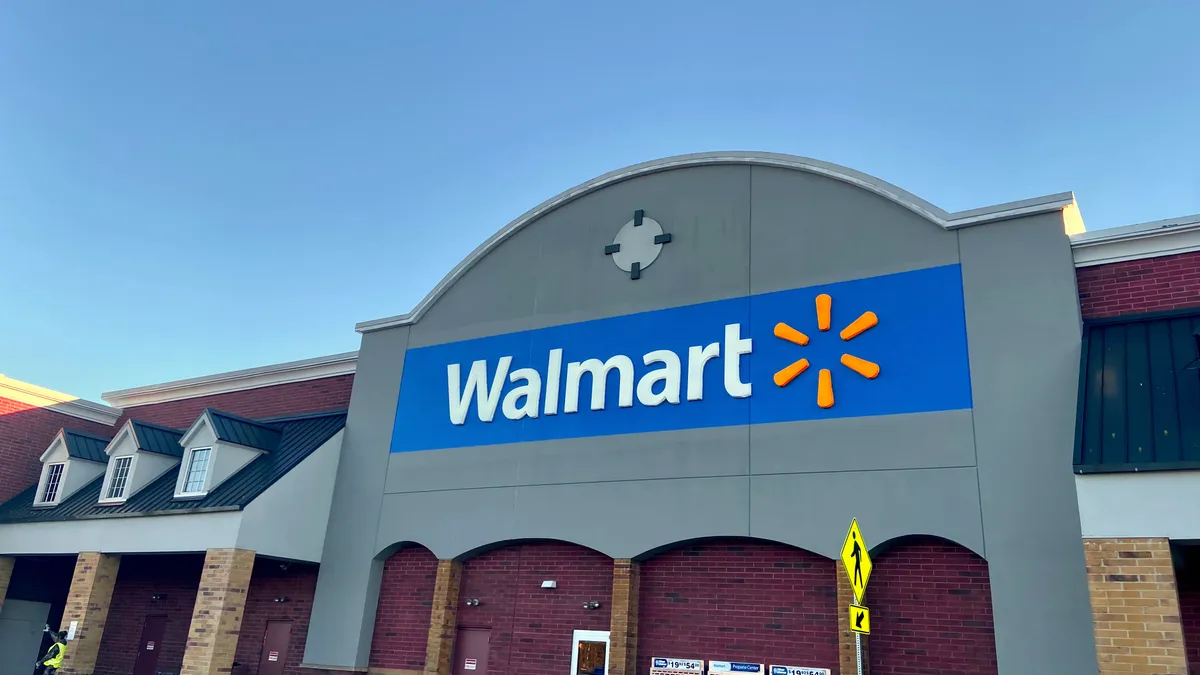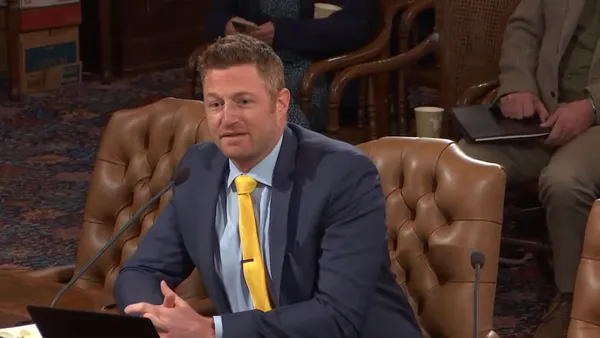Dive Brief:
- Walmart has renewed its partnership with specialty waste and environmental services company Denali, which will provide the retailer with food waste recycling at all of its U.S. locations, according to a Tuesday press release.
- Through the agreement, the companies will divert non-edible food from landfills to instead create compost, feed animals and generate renewable energy. A Denali spokesperson noted that this announcement is the first time Walmart and Denali have made their partnership public.
- This announcement marks Walmart’s latest effort to bolster its sustainability efforts after introducing a number of new initiatives in recent years.
Dive Insight:
The renewed agreement will help Walmart to achieve its waste diversion goal, according to a Denali spokesperson, as millions of pounds of food will go toward “beneficial uses.”
In its 2023 Environmental, Social and Governance report, Walmart stated it wanted to reduce operational food waste by 50% by 2030 and has already achieved approximately a 12% reduction as of the end of 2022. The retailer also has the goal of achieving zero waste to landfills and incineration in its Canada, Mexico and U.S. markets by 2025. For its U.S. operations, Walmart diverted 78% of its waste materials last year, per the report.
The partnership builds on Walmart’s efforts to move toward a circular economy, which involves putting focus on the reuse, recycling and regeneration of materials, the Denali spokesperson said.
Both companies will continue to explore new strategies and tools to reduce food waste and support recycling, per the press release.
Across its operations, Denali recycles over 10 billion pounds of organic materials annually with a significant portion coming from grocery retailers, according to the announcement. The company works with compost manufacturers, including its own network of two dozen compost facilities, to transform food waste, and works with local farms, where certain foods are used as animal feed. Denali also provides food waste to anaerobic digesters for the creation of renewable energy.
The greenhouse gas mitigation impact of Denali’s food waste recycling efforts is annually equal to taking around 100,000 cars off the road or providing electricity to over 60,000 homes for a year, the press release noted.
This is not the first time Walmart has made strides to lessen its food waste. In March 2022, the retailer signed on to the Pacific Coast Food Waste Commitment, an organization working to reduce food waste by 50% along the West Coast by 2030.
Walmart has also made internal moves to improve sustainability among its products. As of September, the retailer’s Great Value private label line now includes compostable cutlery, which is in line with several of its sustainability goals, including reducing its virgin plastic use, achieving zero emissions by 2024 and making all of its private brand packaging 100% recyclable, reusable or industrially compostable by 2025.
















